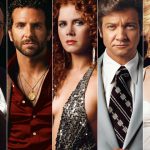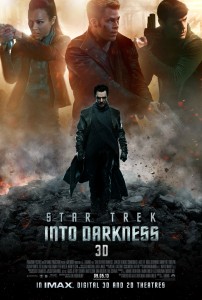2013 at the Movies: The Best, The Worst, Breakthroughs, and Special Mentions
Posted on December 22, 2013 at 6:00 pm
As I think back over the past year, these are the films I remember best:
Top ten:
Inside Llewyn Davis
The Kings of Summer
The Way Way Back
The Wolf of Wall Street
American Hustle
20 Feet from Stardom/Muscle Shoals
No
Gravity
12 Years a Slave
Nebraska
Honorable mention: Before Midnight, Museum Hours, In a World, Frozen, The Spectacular Now, Her, Much Ado About Nothing, Short Term 12, Don Jon, Fruitvale Station, Enough Said, Upside Down, Philomena, 56 Up, The World’s End, Still Mine, Rush, What Maisie Knew, 42, Trance
Best ensembles:
What Maisie Knew
American Hustle
Kings of Summer
The Wolf of Wall Street
Best romantic couple: Celine and Jesse
Runners-up: Beatrice and Benedick
Worst romantic couple: Romeo and Juliet
Best Superhero: Iron Man
Best Supervillain: Loki
MVPs: Benedict Cumberbatch is this year’s Jessica Chastain, with lead roles in five major films plus the narration of the 3D IMAX “Jerusalem” Runners up: Louis C.K. and Jennifer Lawrence for outstanding work in two roles each and Brie Larson for three
Breakthroughs: Lupita Nyong’o, Michael B. Jordan, Ryan Coogler
Overdue breakthroughs: Oscar Isaac, Brie Larson, Lake Bell, Tom Hiddleston
Everything old is new again: Black and white cinematography in “Nebraska,” “Frances Ha,” and “Much Ado About Nothing”
Still getting better: Dame Judi Dench
Just Plain Fun: Now You See Me, The Secret Life of Walter Mitty, About Time, Populaire, Austenland
Worst: Identity Thief, Out of the Furnace, After Earth, Free Birds, Getaway, Lone Ranger, The Host, To the Wonder, Gangster Squad, Romeo & Juliet, Escape from Planet Earth, Burt Wonderstone, Hangover 3, Only God Forgives, Broken City










